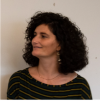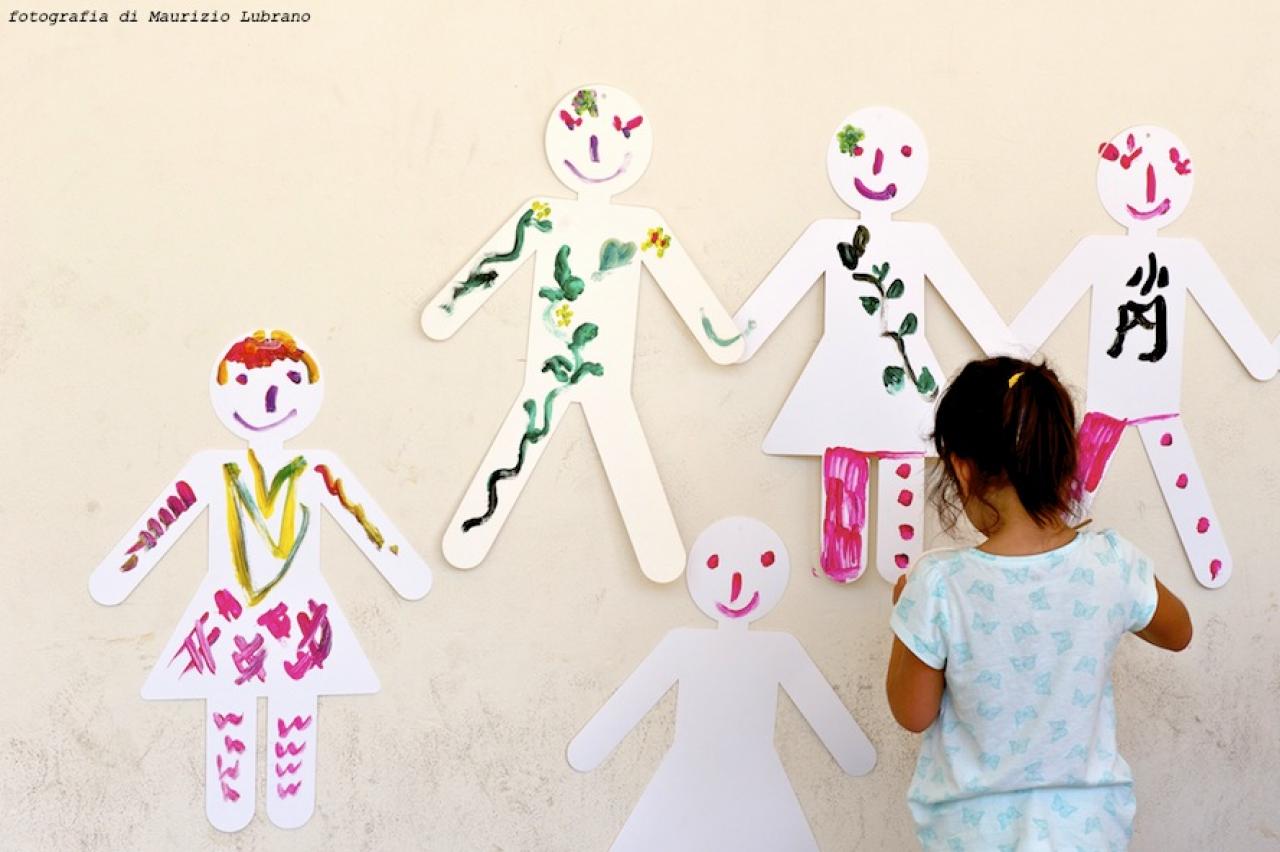
Don’t try to direct PLAY, just make the space playful!
The experience of Playful Paradigm, developed from April 2018 to June 2021, has clearly showed that people don’t need explanation about where and how playing. They need colourful, green, safe and comfortable public spaces car free and open for play for children, adolescents, girls, boys and adults. This lesson learnt and the COVID-19 consequences have driven a new wave of Playful Paradigm.
The New project edition focuses the playful lens, looking particularly at gender issues, intergenerational approaches, older people or people with chronic diseases and adolescents to re-think urban spaces and address specific health challenges, such as the prevention of loneliness and isolation.
Playful Paradigm II involves 5 cities across Europe. The Municipality of Udine, the lead partner uncharged to share and transfer the Good Practice dealing with play, and other 4 cities willing to promote play at city level to foster social inclusion and promote civic participation, healthy lifestyles, sustainability, place making and economic prosperity. The cities partner are: Grosuplje in Slovenia, Jelgava in Latvia, Lousa in Portugal and Igualada in Spain.
The Playful Paradigm II stems from the experience developed in the City of Udine through the playful paradigm approach, shared & transferred through the “Playful Paradigm I” project to other 7 project partners: Klaipėda (Lithuania), Larissa (Greece), Katowice (Poland), Cork (Ireland), Esplugues de Llobregat (Spain), Novigrad-Cittanova (Croatia) and Viana do Castelo (Portugal). Those cities have achieved great results in using ‘Play’ and the “playful approach” as flexible, innovative tools to co-create local initiatives, promote health and well-being, healthy lifestyles, energy awareness and sustainability, active ageing, new place-making strategies and use of urban spaces.
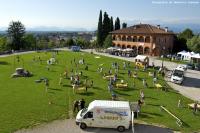
To the Playful experience of Udine to a Network work for promoting play in cities
The Municipality of Udine started more than 20 years ago in promoting Play as a flexible and innovative tool to tackle contemporary urban challenges and promote health and sustainability. (Further information here: The Playful Paradigm Good Practice and Welcome to the European Playful Cities). The city has a rich play programme managed by a municipal dedicated unit responsible for coordinating all the initiatives dealing with play. The most relevant are:
- the «Ludobus» initiative - a mobile toy-library used to promote play activities both in the suburbs and in the city centre;
- the Toy-Library;
- a calendar of play events (World Game Day, Energy in Play, Pi Day, Darwin Day, Library of Living Books, etc.);
- Playful education initiatives with schools and non formal education centers;
- The National Archive of Games.
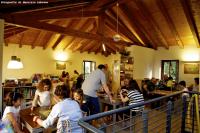
The added value of the first Playful Paradigm Network experience was the opportunity to improve and scale up the good practice. New play-based solutions have been developed and shared thanks to a close co-operation between partners and a local integrated participatory process. For example, the playful paradigm approach has been applied to urban planning through temporary place-making initiatives, tactical urbanism interventions and the development of an urban game.
These results are the basis for the Playful Paradigm II, a second wave which gives the opportunity to further improve the good practice, by enhancing the transfer process, strengthening alliances and partnerships for play at the international level, and investigating some aspects of the first phase of the project. In particular, the network focuses on:
- Improving the playful lens, looking particularly at gender issues, intergenerational approaches, older people or people with chronic diseases, adolescents. Children are usually the preferred target group since it is proved that games can foster their well-being and development. But, games could be extremely important also for adolescents, especially in front of the effects of the COVID-19 Pandemic lockdown and distant learning that they were forced to. The same can be said for older people, whereas play can be used as a valid cognitive and emotional stimulation to prevent cognitive decline and contrast loneliness and isolation. Finally, gender issues both in terms of use of urban spaces and playgrounds, play adaptation, prejudices and stereotypes are of great importance.
- Further exploring play as a tool for re-designing urban spaces, by making it a pervasive approach in our cities, by promoting capacity-building for planners and decision-makers, by investigating the relationships between the place standard tool and the play standard tool. The idea is to develop a sort of urban planning model which takes into account the need of playing infrastructures and activities when planning urban spaces.
- Addressing specific health challenges, such as the prevention of loneliness and isolation and the promotion of emotional and social well-being, also to counteract the effects of the COVID-19 Pandemic. This global crisis we are facing has incredibly increased health inequities, dis-connection, loneliness, mental disorders, in particular for vulnerable population groups, and play could be a relief as well as a tool to promote social inclusion, participation and mental, emotional and relational health.
Four Modules to transfer the Playful Paradigm at City Level
The methodology to develop the Transnational Exchange and Learning Activities (E&L) in the framework of the Playful Paradigm II is based on one of the most relevant deliverables of the first wave transfer: the “Policy-Manifesto of European inclusive Playful Cities”
The transfer methodology focuses on 4 Transfer Modules that contain “play based approaches”, which consist of relevant practical activities implemented by Udine and the first Playful Paradigm Network and “rooms for improvements” aimed at further enhancing the Playful Paradigm, considering especially the urgent COVID emergency, the inclusion of marginalised people, the gender based approach and the need to re-think the use of urban public spaces.
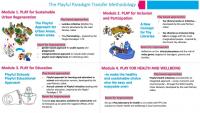
The Module 1 - PLAY FOR SUSTAINABLE URBAN REGENERATION analyses the possibility offered by play to re-think urban public spaces. Starting from the Ludobus initiative and the play placemaking experiences, it addresses also gender based approaches for public spaces and playgrounds, the intergenerational approach to include older people and adolescents in city life and playful smart digital tools to re-think city spaces.
The Module 2 - PLAY FOR INCLUSION & PARTICIPATION seeks to develop a new concept for Toy Libraries looking at novel opportunities to transform them into inclusive living labs, where engaging with the most marginalized people. It also seeks to provide a reflection on virtual play-places and the role of video games targeted to teenagers, parents and families.
The Module 3 - PLAY FOR EDUCATION focuses the attention on the innovative approach in education by providing playful experiences both in formal and informal learning environments, inside the schools and in the city events. It addresses the needs of adolescents to tackle the negative effects of the COVID-19 Pandemic.
Module 4: PLAY FOR HEALTH AND WELLBEING promotes an integrated approach – social, economic and environmental - through the “WHO Healthy Cities” philosophy. It forecasts to set up a “Play Laboratory for health”, where Project Partners can co-create novel solutions to foster health and wellbeing in local communities.
PLAY IS A SERIOUS MATTER AND CAN MAKE THE DIFFERENCE!
Summing up, the overall philosophy driving this process is based on PLAY as promoter of social inclusion and participation, intergenerational and cultural mediator, facilitator of healthy lifestyles and energy awareness, place-maker and economic boost for inclusive and resilient communities.
PLAY helps in transforming settings into incubators/accelerators of sustainability and wellbeing (physical, mental and social/relational): from needs-based to assets-based environments, from static to dynamic approach, from spatial to transformative, from passive to enabling, empowering, from single to multiple entry-point places with multiple ownership. The approach promotes creative place-making by conceiving urban places as common goods and enhancing local economy and social innovation.
PLAY IS A SERIOUS MATTER AND CAN MAKE THE DIFFERENCE in the future of our cities, by helping to re-think the “community welfare”, by engaging local communities and enhancing their cohesion and resilience.

